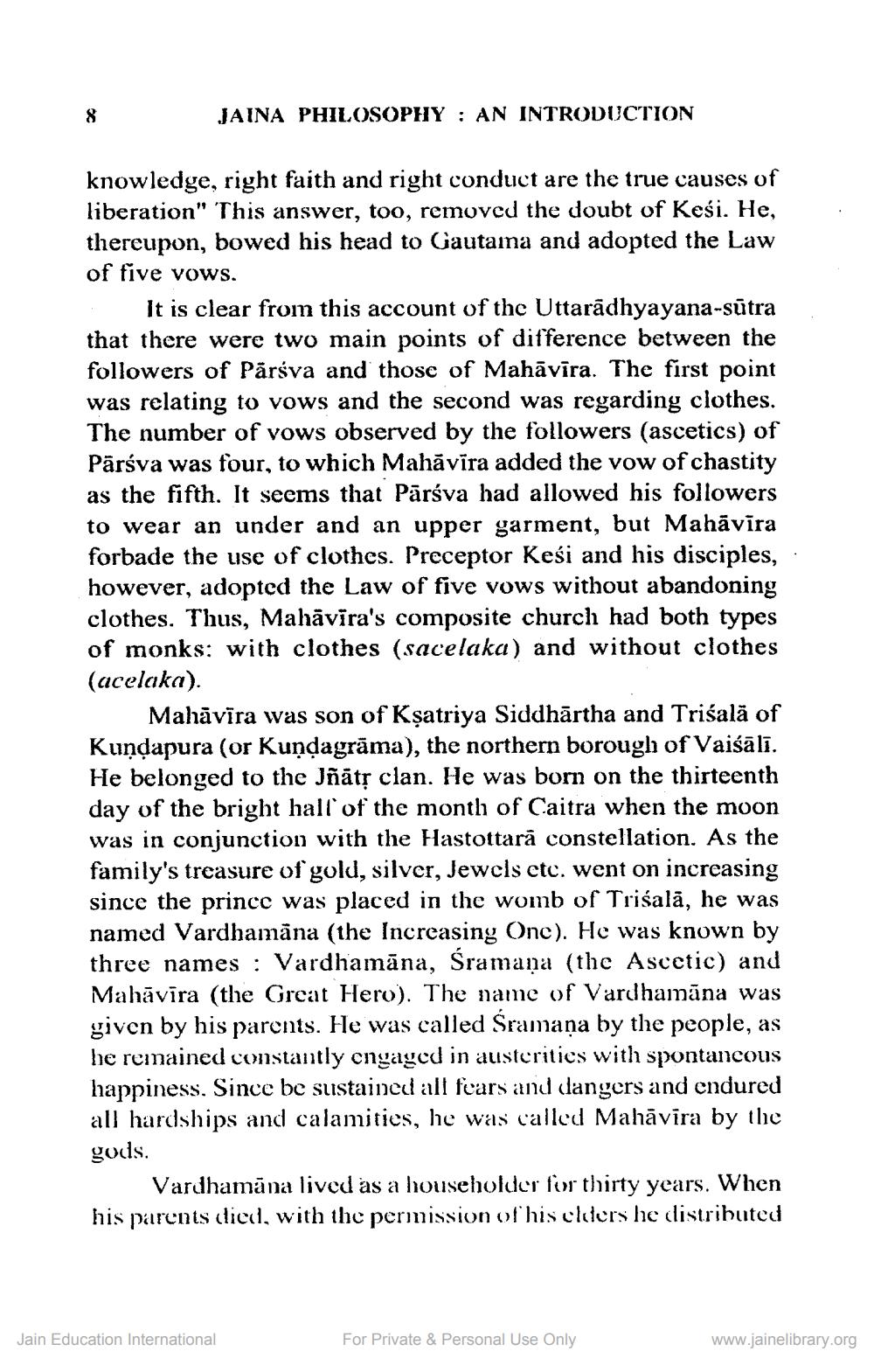________________
JAINA PHILOSOPHY : AN INTRODUCTION
knowledge, right faith and right conduct are the true causes of liberation" This answer, too, removed the doubt of Kesi. He, thereupon, bowed his head to Gautama and adopted the Law of five vows.
It is clear from this account of the Uttaradhyayana-sūtra that there were two main points of difference between the followers of Pārsva and those of Mahāvīra. The first point was relating to vows and the second was regarding clothes. The number of vows observed by the followers (ascetics) of Pārsva was four, to which Mahāvīra added the vow of chastity as the fifth. It seems that Pārsva had allowed his followers to wear an under and an upper garment, but Mahāvīra forbade the use of clothes. Preceptor Keśi and his disciples, . however, adopted the Law of five vows without abandoning clothes. Thus, Mahāvira's composite church had both types of monks: with clothes (sacelaka) and without clothes (acelaka).
Mahāvīra was son of Kșatriya Siddhārtha and Trišală of Kundapura (or Kundagrāma), the northern borough of Vaiśālī. He belonged to the Jñāts clan. He was born on the thirteenth day of the bright hall of the month of Caitra when the moon was in conjunction with the Hastottară constellation. As the family's treasure of gold, silver, Jewels ctc. went on increasing since the prince was placed in the womb of Trisalā, he was named Vardhamāna (the Increasing Onc). He was known by three names : Vardhamāna, śramana (the Ascetic) and Mahāvīra (the Great Hero). The name of Vardhamāna was given by his parents. He was called Sramaņa by the people, as he remained constantly engaged in austerities with spontancous happiness. Since be sustained all fears and dangers and endured all hardships and calamities, he was called Mahāvīra by the gods.
Vardhamāna lived as a householder for thirty years. When his parents died, with the permission of his clders he distributed
Jain Education International
For Private & Personal Use Only
www.jainelibrary.org




